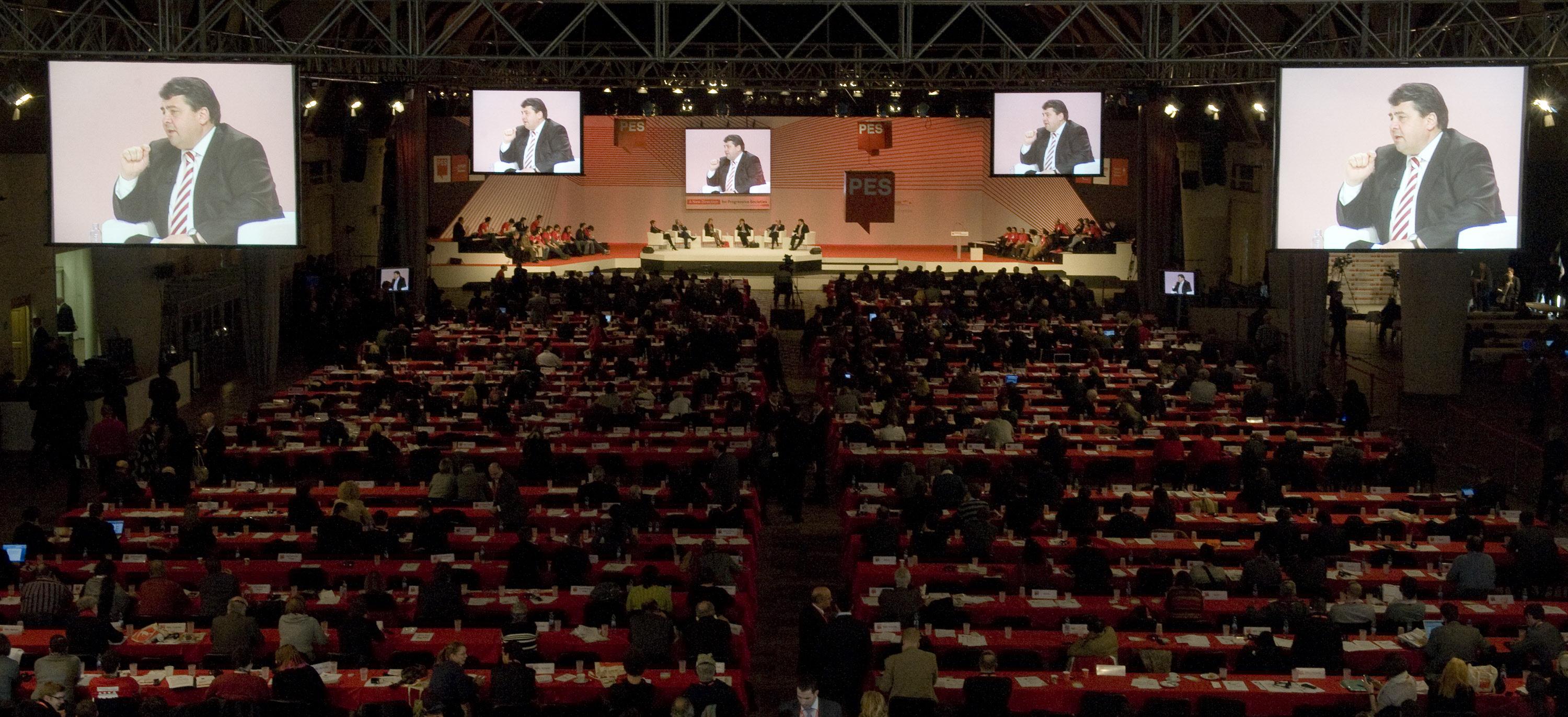Yesterday while it was Thanksgiving in the United States, it was day one of the party conference of the Party of Europeal Socialists, the EU-level umbrella organization of the continent’s mainstream center-left parties. One mistake that I see people making in discussions of European economic policy is over-identification of the current incumbents governments with the whole of the nation. It’s important to keep in mind that in Europe, like in the United States, they have partisan politics and ideological disagreements. Countries do have enduring interests, but Barack Obama’s economic policy preferences are substantially different from John Boehner’s (this is why we have supercommittee deadlocks) and in Europe, too, people disagree about things. So it’s important to note that the key countries in the driver’s seat of the crisis, including most notably Germany and France but also the large-but-less-involved United Kingdom and the smaller Netherlands are all led by right-wing governments. We used to have social democratic governments in Greece and Spain, but the European Central Bank got rid of the former and the voters ditched the latter, and both of those countries have been in supplicant positions rather than leadership ones. So I think it’s worth paying some attention to what the generally-in-opposition PES members had to say about the crisis in their General Resolution adopted yesterday (PDF).
They’re calling for new government spending on “green growth, jobs, social and territorial cohesion” to be financed with a Financial Transaction Tax and new green taxes on pollution. They want an integrated EU banking regulator. They seem to want a European version of Glass-Steagall. They want a ban on naked short-selling of credit default swaps (a bad idea). But most importantly, there’s this mouthful:
As an immediate first step to stabilise the eurozone sovereign bond markets and thus make public debt sustainability possible, it should be considered to allow the EFSF to be directly refinanced by the ECB. The creation of a Eurozone Stability Agency that could include the possibility to issue Eurobonds, would allow the eurozone to manage in common a determined part of public debt and finance cross-border investments for growth and job creation. This would also pitch the full weight of the eurozone against market speculators. We, the PES, are placing these reforms in the framework of a broader common economic and social strategy for the eurozone. Therefore it must include measures to reinforce mutual surveillance and fiscal responsibility which should not be to the detriment of the European social model, without European interference on national wage policies. We must also ensure strong democratic accountability and legitimacy. In this respect, the European Parliament must be put on an equal footing with the Council. This is the Europe we want. Not one where key decisions are taken by two conservative governments behind closed doors.
This is basically the agenda that we’re often told “Germans” won’t accept. But while French and German social democrats will clearly lose their principled opposition to backdoor Franco-German dealmaking if they take power, the German Social Democrats seem to me to be on board with the basic program. In other words, it’s not “Germany” as such that’s rebuffing sensible French suggestions for the ECB to step up and solve this problem, it’s the CDU/FDP coalition. Hypothetical different policies undertaken by different Germany governments won’t save Europe, of course, but finger-pointing should be done with precision.
